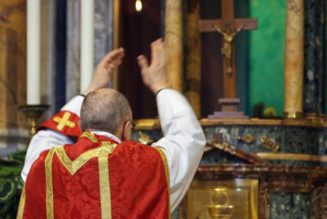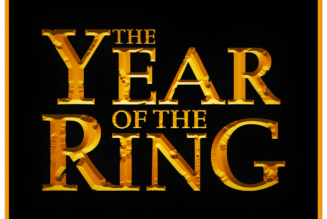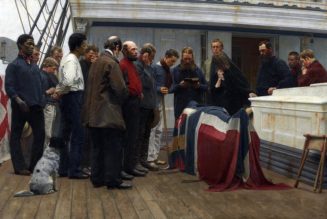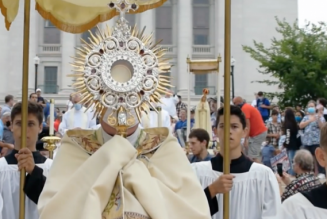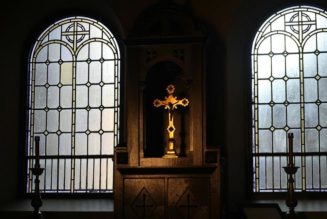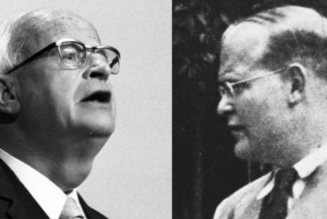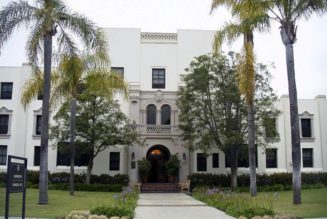
Froh erfülle deine Pflicht. It was twenty years ago that I saw this German phrase in needlepoint in an antique shop in the Shenandoah Valley. “Do your duty cheerfully” is close enough to its literal meaning. I remember thinking at the time that it was a charming relic of Pennsylvania Dutch Lutheran culture.
As is true of many in my generation, my thinking about the moral and spiritual life has been shaped by the teaching of the late Servais Pinckaers, O.P., who did so much to recover a synthetic vision in which natural inclinations, human freedom, and divine grace work in concert. Together with St. John Paul II’s Veritatis Splendor, Pinckaer’s Sources of Christian Ethics helped to reset Catholic discourse. Rather than a rear-guard action against the latest infidelities proposed by dissenters, moral theology in the past two decades has often been an inspiring sapiential discipline, true to the high call that the Lord gave to us in his Sermon on the Mount.
As is well known, one of the features of this renewed moral theology is an emphasis upon the end, variously spoken of as divine friendship, divinization, or, simply, charity. The result has been deep and sustained reflection upon the life of Christ, the graces offered by the sacraments, and the gifts of the Holy Spirit. And this wisdom has not remained in scholarly journals and classrooms; it has been heard from the pulpit and in the privileged spheres of spiritual direction and the sacrament of penance. It has, however, often been noted that the renewal of moral theology needs to maintain contact with the pre-conciliar tradition of speaking about the moral life in terms of the Ten Commandments. And, in the third part of the Catechism of the Catholic Church, we see just such a synthesis, at least in its broad outlines.
From time to time, however, one is reminded of the importance of the Commandments and their specification in the law of the Church. This is one of those times. As we return to our parishes for Sunday Mass, we have an occasion for thinking about what the First Commandment requires of us.
The Catechism presents the First Commandment as an over-arching principle of submission to the Divine Will, a command the response to which is adoration, prayer, and, in sum, creaturely obedience, together with the avoidance of any form of idolatry that would supplant that submission. It may be asked, however, whether we should hear an echo of the First Commandment in the First Precept of the Church: “You shall attend Mass on Sundays and on holy days of obligation and rest from servile labor.”
There are two difficulties here. The first is that the Precept evidently refers to the Third Commandment. Yes, but surely the command that the Mass which we are obliged to attend is the one offered on the Lord’s Day is a specification of the First Commandment’s more general lesson about the debt of worship we owe to God (see CCC 2135). The second difficulty is that the Precept is positive law, and even after decades of good Thomism, we remain skeptical of the pedagogical function of law. If the Church insists upon our duty to worship God in this way—by the regular attendance at Sunday Mass—then we may worry that we are confronted with a demand for social conformity that serves the rulers rather than the ruled.
In order to appreciate the full bearing of the First Precept of the Church upon human character, it needs to be rightly situated. It is a claim upon the will. At stake is whether we love rightly. “Charity,” the authors of the Catechism explain in their treatment of the First Commandment, “leads us to render to God what we as creatures owe him in all justice. The virtue of religion disposes us to have this attitude” (CCC 2095).
It is, of course, not enough for us creatures merely to have benevolent thoughts about God or to wish that our relationship to him were right. As in the case of any other exercise of justice, the proof is in the deed. And the First Precept of the Church has just such an action in view, the right public worship of God—worship that is “in spirit and truth” (Jn 4:23) and a very “work of God” (Jn 6:29) because it is a public manifestation of our belief in Christ.
In recent weeks, we have heard many cries of anguish at the deprivation of the sacraments, most especially the reception of Holy Communion. And rightly so. But the topic of the duty of the laity to worship God has mostly been conspicuous by its absence. It seems fair to say that much of what has been heard during the quarantine has focused upon the spiritual growth of Catholics during a time of trial. Of those statements and discourses, many have been edifying, but some have bordered on the therapeutic.
Certainly, attendance at Sunday Mass may involve the reception of Holy Communion and personal spiritual growth—one hopes that both are normally attained. What it always (or almost always) involves, however, is the subordination of the desires of the individual Catholic to the good of the whole parish. Sunday Mass is offered at set times, in a set place, with a certain group of people. At any given parish and at any given liturgy, there will be traffic jams, icy sidewalks, crowded seating, insufficient ventilation, crying children, maudlin music, rambling homilies, and now perhaps even the demand that a facemask be worn. These little slivers of the Cross are not what make attendance at Mass virtuous, but they are the proper signs of the truth that when we attend Sunday Mass at the parish we do so as parts of a larger whole, the Body of Christ. And we do so in fulfillment of a solemn duty—dignum et justum est—not merely from some private search for interior betterment, however exalted that may be. Given that the prevailing idolatry of our age is the worship of the self, it seems entirely appropriate that the regular attendance at Sunday Mass often involves setting aside personal preference in favor of common duty.
The law-abiding practice of regularly attending Sunday Mass is also deeply formative of our character. In a world overwhelmed by sins against temperance, it is easy enough to overlook the importance of justice. Yet it is the exercise of justice that makes a man or a woman good. And the offenses that most trouble us in other people are injustices of one kind or another, such as lying, failure to return something owed, acts of disordered ambition, unjust expectations by employers, and other such deeds or omissions. St. Augustine memorably held that we ought not to consider an irreligious man to be just because such a man fails to repay the deepest and most solemn debt that he owes, his debt to God. Now, to be sure, we owe our entire lives to God. And our greatest models of Christian life, as Veritatis Splendor and Fr. Pinckaers were keen to point out, are indeed the martyrs, those who “gave their lives rather than perform this or that particular act contrary to faith or virtue” (VS 76). Few of us, however, will be called to martyrdom; all of us are rightly subject to the First Precept of the Church. And we should be grateful for the rule, for the imposition of the duty, because it tethers us to God and to his service in a concrete way that keeps us on the right path through life. From that vantage, then, we can say that the character of Catholics is deeply shaped by the obligation to worship and, concretely, by the practice of attending Mass every Sunday, one hopes, in the cheerful fulfillment of duty.

